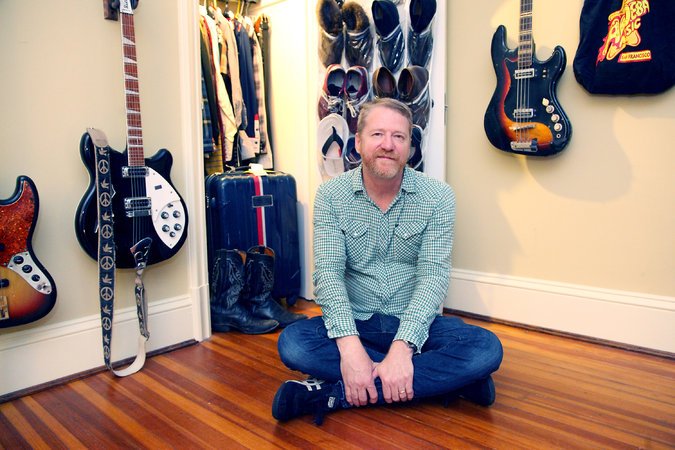For many years now, we’ve written about the fact that copyright law and the First Amendment are actually in quite a lot of conflict. After all, copyright is regularly used to stifle speech, and the First Amendment isn’t supposed to allow for the barring of speech. Over the years, legal experts have been increasingly starting to realize this. A few years back, we wrote about a paper wondering why copyright law
doesn’t require a showing of harm, as should be required under the First Amendment. We’ve also pointed out that the more that you explore the fact that copyright and the First Amendment seem to be in conflict, the
more you recognize how screwed up copyright law has been. I’m even aware of two whole books that both focus on this problem: Neil Netanel’s
Copyright’s Paradox and David Lange & H. Jefferson Powell’s
No Law (as in “Congress shall make
no law…”).
But, for whatever reason, copyright system supporters always seem to wave off this issue as if it’s some kook theory, unwilling to confront the stark reality that copyright law has a serious First Amendment problem. And, no, the argument that “well the two coexisted for over 200 years” doesn’t cut it, because copyright was very, very different for the first 200 years of its existence in the US. Nor does the claim that copyright law is some sort of magic exception to the First Amendment because the Copyright Clause in the Constitution “came first.” That sounds good… until you remember that the First Amendment is called that because it’s an amendment and you remember that it’s the later part that should take precedent.
Hopefully, though, more people are beginning to recognize this issue. Law Professor John Tehranian (who has written a wonderful book on copyright excesses himself, called Infringement Nation) has an excellent article at legal trade publication The Recorder detailing the simple fact that Copyright Law Has a Free Speech Problem. It starts with a perfectly clear example of this, where two celebrities sought to punish a news tabloid for publishing proof that they had married by buying up the copyright to the photographic evidence of their wedding, and then suing for copyright infringement:
First, Monge and Reynoso purchased the copyright to the photographs. Then, they sued Maya for copyright infringement for its unauthorized use of the photographs—not to vindicate any real value in the copyrighted work but as a means of suppressing and punishing truthful speech. The gambit worked. Although a district court originally found Maya’s activities protected under the fair-use doctrine, the U.S. Court of Appeals Ninth Circuit ultimately reversed and, in a 2012 published decision, deemed Maya liable for infringement.
We wrote about this case when it was ruled upon, noting the ridiculousness of the ruling at the time. As Tehranian notes, this is just one of many examples of copyright now being used to stifle First Amendment protected free expression:
By fetishizing property interests in copyright works at the expense of the public right of access to factual information, the decision effectively provided future plaintiffs with significant cover for disingenuous uses of copyright law to punish legitimate free speech on matters of public interest. And lest one think that the Maya decision only governs seemingly frivolous celebrity scandals, the precedent could just as easily be used to attach liability to the next publisher of the Pentagon Papers or other unpublished materials containing eminently newsworthy secrets.
And, no, he notes, this is not just one case. It’s happening all over.
In recent years, creationists have used the Digital Millennium Copyright Act to force the takedown of critical materials put online by evolutionists. Abortion-rights activists have brought infringement litigation to enjoin speech by pro-life forces (Northland Family Planning Clinic v. Center for Bio-Ethical Reform, 2012). Military personnel have ginned up copyright claims to suppress photographs documenting human-rights abuses (Four Navy SEALs v. Associated Press, 2005). And a prominent political talk show host has sued to prevent unauthorized reproductions of his broadcasts in order to suppress criticism of his hate-filled rants (Savage v. CAIR, 2009).
Tehranian — rightly — slams the federal judiciary for allowing this to happen, and basically ignoring the First Amendment issues, usually with the wave of a hand about how fair use solves all the problems. But, as he notes, that leaves many in the unfortunate (and nearly impossible) situation of not being able to rely on the First Amendment to protect free speech, but to try to force it directly into copyright law itself.
Because of this issue, he offers a potential solution, saying that we need a NY Times v. Sullivan for copyright. We have, of course, discussed that case many times in the past — most recently in the context of Donald Trump’s apparent ignorance of its existence or meaning. But it’s the seminal case that made defamation law “okay” under the First Amendment, by strongly favoring free expression (around public figures) by limiting defamation to cases of “actual malice.”
Courts have had no problem with imposing carefully circumscribed First Amendment limitations on tort liability in a variety of scenarios. In New York Times v. Sullivan (1964), the Supreme Court famously held that defamation claims brought by public officials should be subject to a critical First Amendment check: a showing that the defendant acted with actual malice by either intentionally disregarding the truth or acting with reckless indifference towards it. The Supreme Court has subsequently extended the holding of New York Times to all manner of defamation, false light (Time v. Hill, 1967), intentional infliction of emotional distress (Hustler v. Falwell, 1988) and invasion of privacy (Cox v. Cohn, 1975) cases involving public figures or matters of public concern.
These doctrinal innovations have a common goal: preventing the courts themselves from being used by private individuals to effectively suppress speech on matters of public concern. However, the courts have left a gaping exception: copyright law. The adoption of a New York Times v.
…
Read the rest

 Spotify has been sued for
Spotify has been sued for